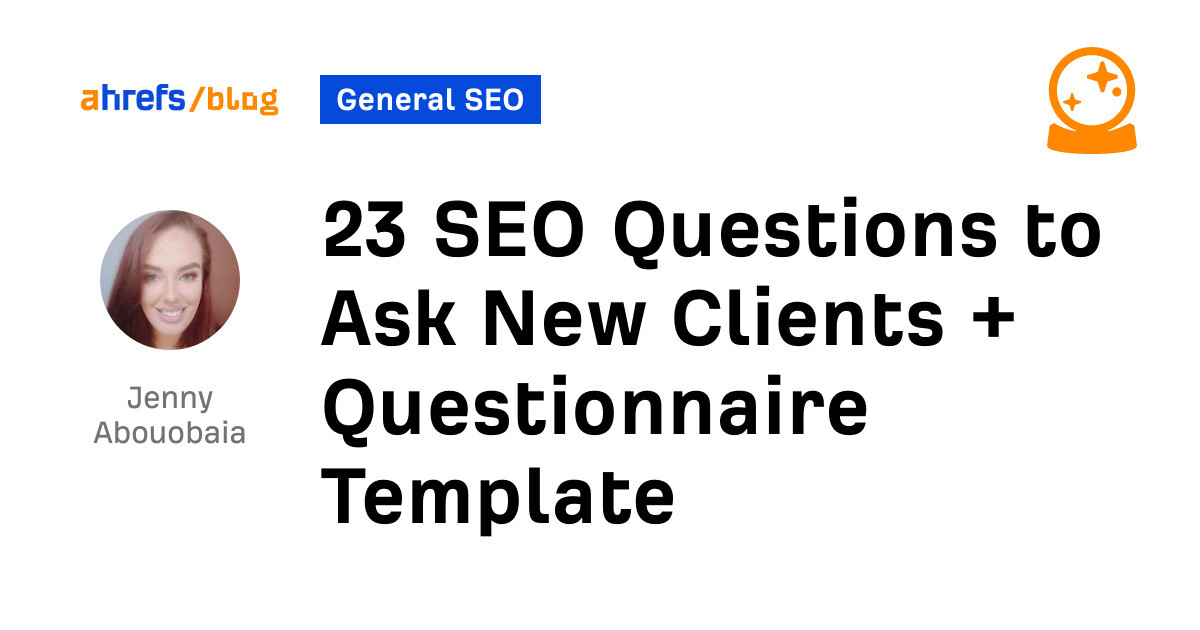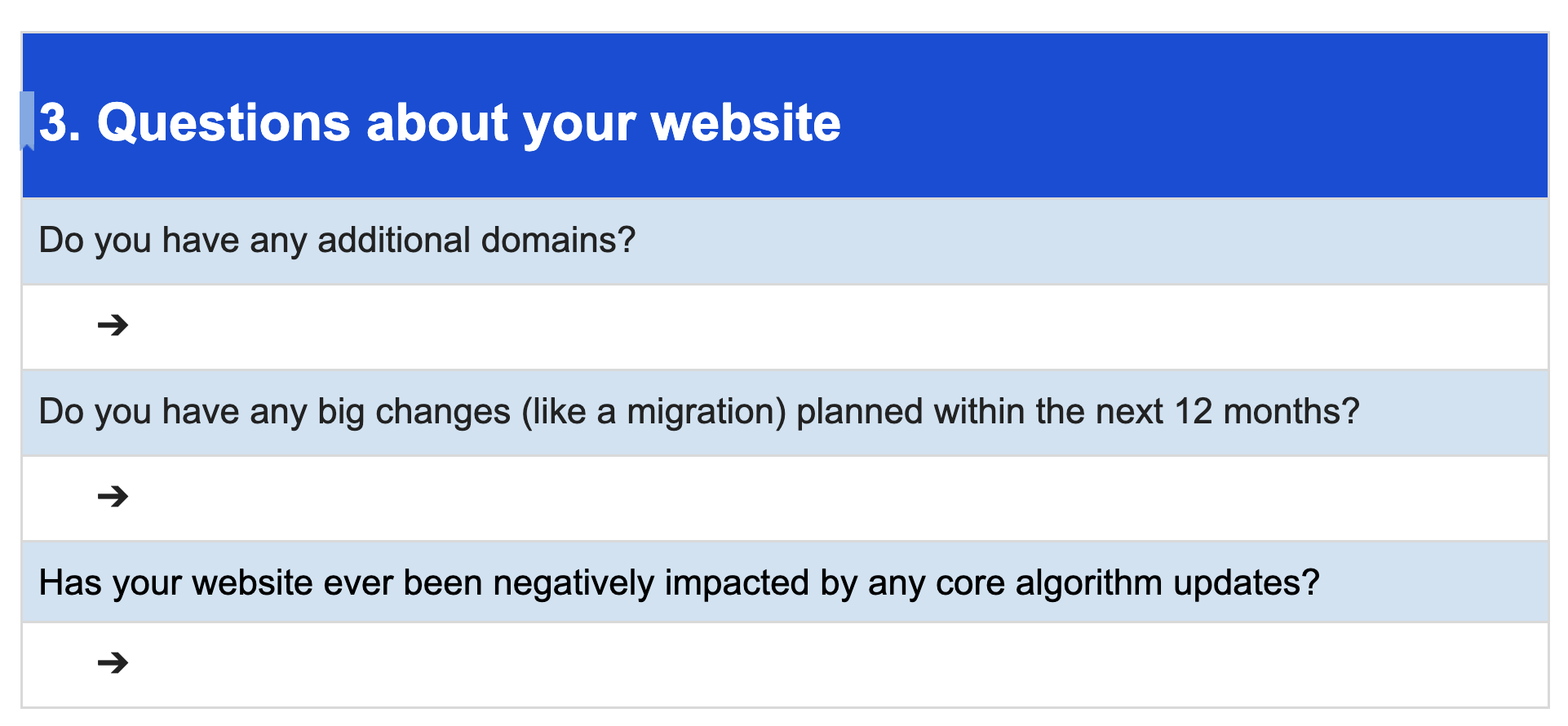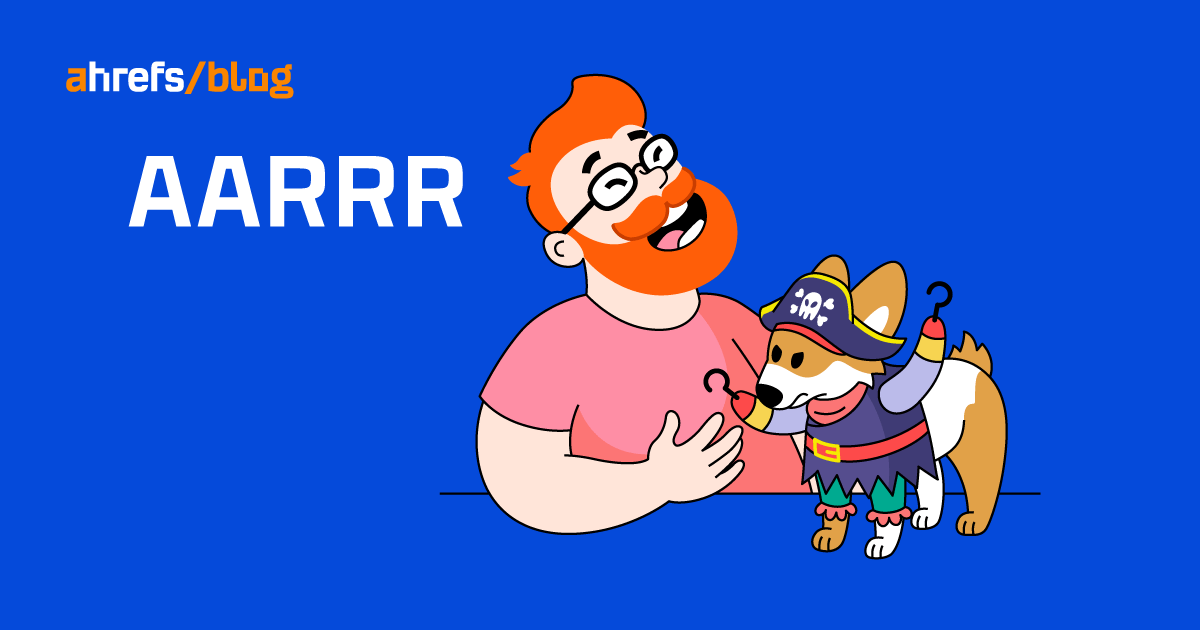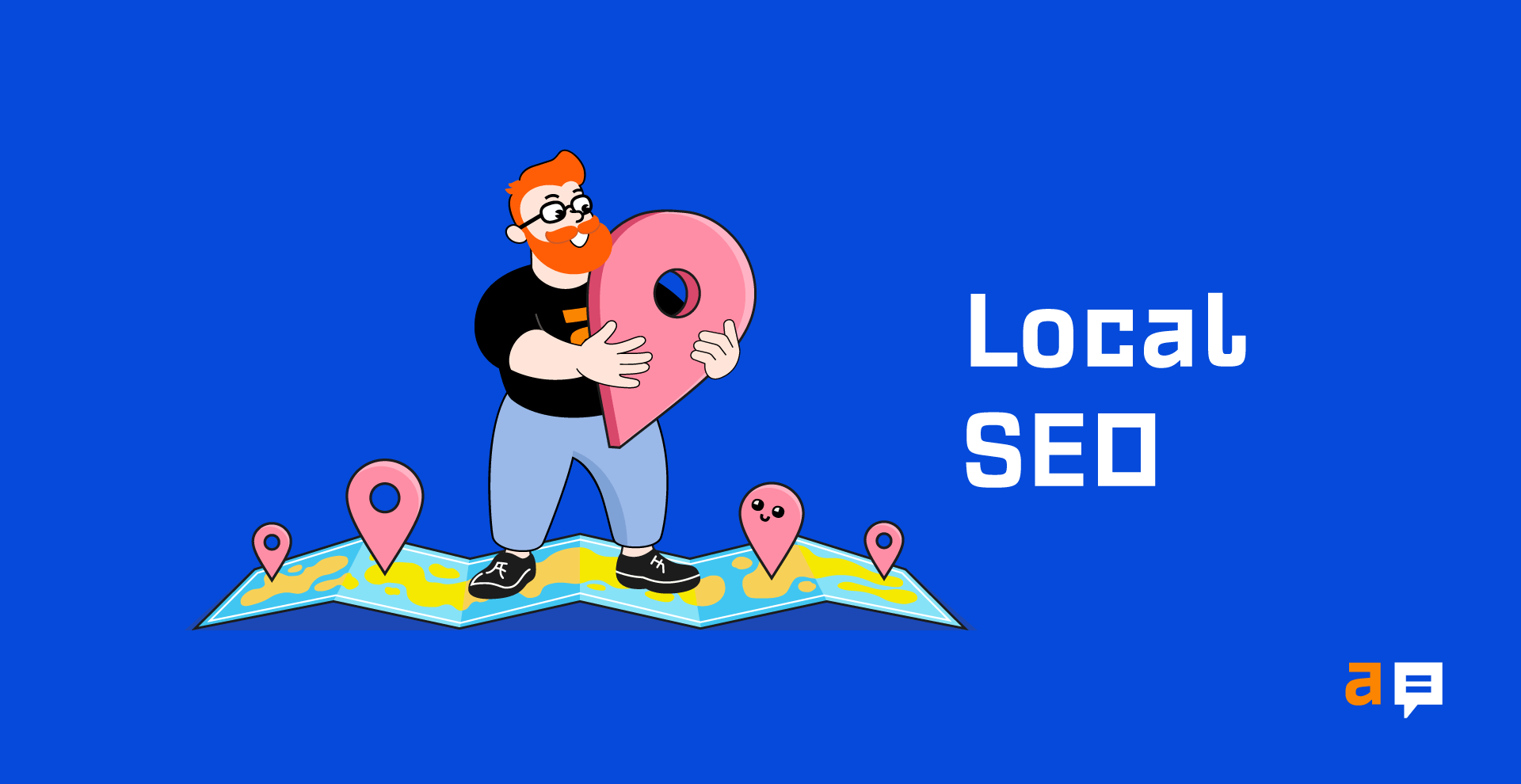23 SEO Questions to Ask New Clients + Questionnaire Template
After working with a number of SEO agencies and as a freelancer, I’ve found that asking the right questions at the start of a (potential) cooperation is key to getting started with a successful campaign quickly and easily. We’re...

Working with new clients for the first time can be overwhelming. Getting all the essential information to start working on growing their business through SEO is one thing. Doing it in a way that shows you’re a seasoned professional is another. After working with a number of SEO agencies and as a freelancer, I’ve found that asking the right questions at the start of a (potential) cooperation is key to getting started with a successful campaign quickly and easily. We’re going to look at 23 questions to both qualify and get started working with new SEO clients. Although some questions may differ depending on the types of clients you work with, I have put together a thorough client questionnaire template you can copy and use right away to save you time and have everything you need ready. Let’s take a look. You can start by making a copy of our client questionnaire template. I’m going to walk you through each section (and why it is essential), including: Before we look at those, there are a few quick things to mention. First, you can change the template’s colors and feel and add your logo to fit your brand. Secondly, depending on your SEO clients and your area of focus, you may need to adjust some of the questions (or add in some of your own). Or if you’re working with an agency that works with multiple types of clients, you may want to create a specific template for each. For example, one for e-commerce clients, one for local SEO clients, and so on. With that said, let’s jump straight in. Access to your client’s existing data is imperative to create a successful SEO strategy. You need access to their platforms to make a full site assessment, look at historical performance, and set up SEO reports. Once both parties have decided to work together, you should get access to their platforms, including: If your client is not a new business and has worked with other agencies or freelancers before you, it is also helpful to get access to any documentation they may have. These can include keyword research and reports, which can help prevent you from duplicating any work they have already done. Next up, you’ll learn everything about your client’s business. When putting together an SEO strategy, it’s necessary to consider what is best for your client’s website and its positioning on the SERPs. But also that all deliverables and KPIs align with the business’s overall goals. Knowing whether your client’s business is seasonal can help you anticipate natural highs and lows in traffic and plan campaigns effectively. In this section, you need to ensure there are no nasty surprises. An additional domain you know nothing about? Planning a migration in three months? Now is the time to find out! Understanding your client’s goals (both in the short and long term) can drive your overall SEO strategy and help you understand and manage your client’s expectations. Are they a brand-new business looking to rank in the top position for a keyword dominated by industry leaders? Are they expecting their traffic to go from zero to 1 million in six months? If so, this would let you know you need to run away quickly help them understand what goals would be realistic, given their current business stage, budget, and time frame. Who has your client worked with in the past? Have they done anything other than SEO, such as digital PR? Plus, what worked and what didn’t if they previously had standard operating procedures (SOPs) in place? Knowing this information can guide you through implementing processes that work for you and your client. By understanding what they’ve done before, you can avoid any issues they may have had previously that led them to dissolve their former partnerships. We all know link building is a significant part of SEO and is likely something you must consider in every client’s SEO strategy. However, it is essential to understand what efforts they have made previously and if they currently have any other team members or freelancers solely working on acquiring links. This will prevent you from duplicating any former or existing link building efforts. It is also crucial to understand if your client has used any potentially risky link acquisition methods in the past that could negatively impact your SEO efforts moving forward. Performing a backlink audit with every new client you take on is always a good idea if you’re hired as a general SEO consultant. This won’t likely apply to you if you’re hired for a particular task, such as creating content plans or solely working on technical SEO. It always makes things easier to know how much cleanup you need to do and how much potential risk there is if the client tells you about being involved in link schemes, for example. So there you have it. In all, 23 SEO questions to ask clients that are broken down into six sections in a template you can use repeatedly. Be sure to make a copy and customize it to your brand and services so that it’s ready for your next client. Making sure you use every opportunity to set yourself up for success is a crucial part of building long-lasting relationships with clients. The first part is having tools available to onboard new clients quickly and easily. Of course, this is just a guide on what to walk through with a client on their first or second call. You can customize the template based on your focus and needs. Think we’ve missed something or have any questions? Ping me on Twitter.






Final thoughts

 MikeTyes
MikeTyes 































